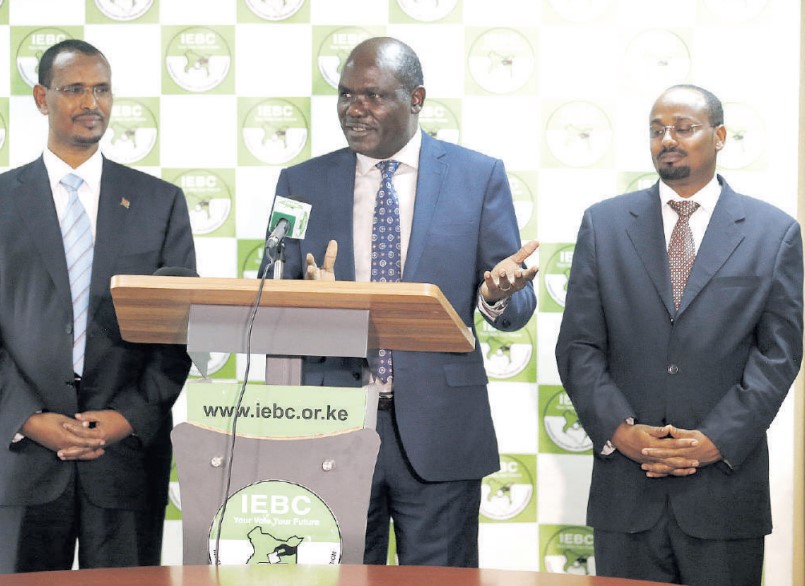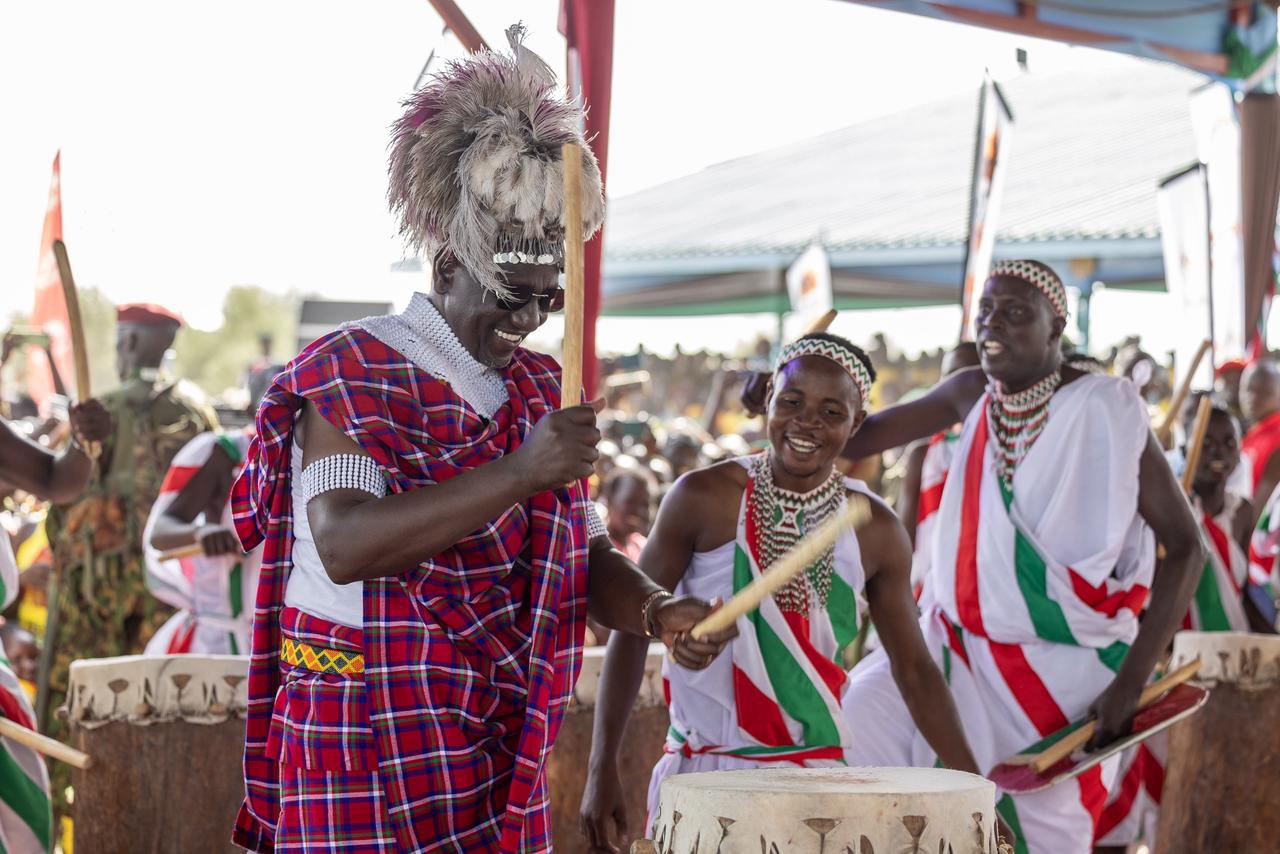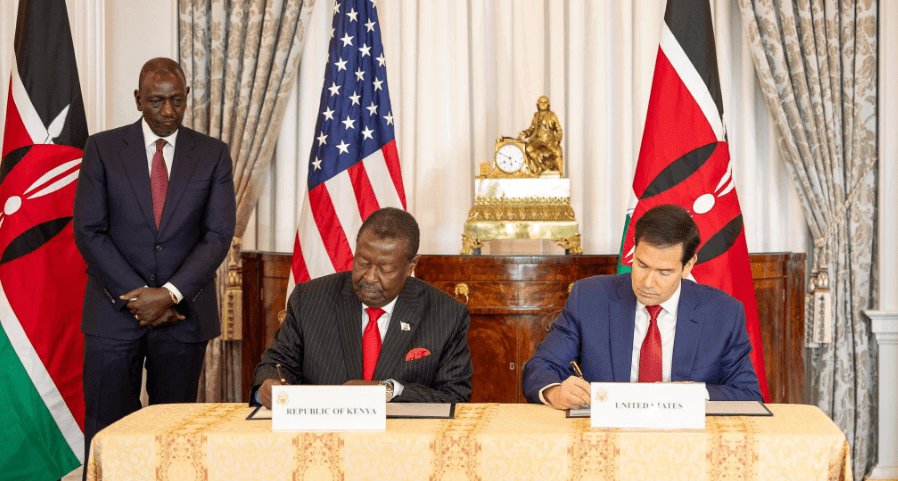.jpeg&w=3840&q=100)

As the clock ticks towards the next election, pressure is piling on the government to facilitate the constitution of a new electoral agency with opposition and civil society raising alarm of an impending constitutional crisis.
The country has not had a fully functional electoral agency, two years since the exit of the last commission.
The absence of commissioners renders the Independent Boundaries and Electoral Commission crippled and unable to perform its key mandates, which include boundary delimitation and by-elections.
Makueni Senator Daniel Maanzo told the Star on Friday that the delay is by design, even as he accused President William Ruto’s administration of holding the country at ransom.
“We are in a very big constitutional crisis now that we cannot be able to conduct elections, even by-elections for those who died, [as well as] those appointed to,” Maanzo said.
“That itself means there are people who are not represented at all. All projects which should take place are not happening “There is no hope in sight, there is no sign of the matter being resolved quickly. We are hoping the government is going to do something about it.”
Political analyst Daniel Orogo called for the urgent removal of legal bottlenecks that has been a hindrance to the realisation of the IEBC selection panel.
There has been push and pull with clashing interests on who should sit at in the panel, with opposition fronting different names.
Azimio la Umoja-One Kenya coalition is embroiled in disputes over the rightful representative for small parties on the panel.
Wiper leader Kalonzo Musyoka supports Ambassador Koki Muli for the role, while the National Labour Party maintains its candidate, Augustus Kyalo, was duly elected in July.
“The crisis confidence and trust with representation of political parties representatives should resolved through the political liaison committee,” Orogo said.
The Supreme Court is yet to give an advisory on the possibility of the secretariat conducting the boundary review without the commission.
This followed a request by CEO Marja Hussein Marjan for an opinion from the apex court for direction.
“We crave the Supreme Court’s advisory opinion on issues, including whether IEBC can undertake the process of delimitation in the absence of commissioners, whether it can conduct a review of the names and boundaries of constituencies and wards when the timelines have elapsed and whether the constitutional timelines can be extended,” Marjan said.
The IEBC CEO was responding to a concern by lawyer Danstan Omari who sought Parliament’s intervention to avert a constitutional crisis.
“Elections must be conducted, who will perform the election exercise? We are in a major constitutional crisis that can bring this country down,” Omari said.
“My appeal as a senior advocate is that the government should go to the Supreme Court and get an opinion. We have legal ways to solve this crisis.”
Former chairman Wafula Chebukati and commissioners Boya Molu and Abdi Guliye, left the office in January this year, after expiry of their term.
Former vice chairperson Juliana Cherera, Francis Wanderi, Justus Nyang’aya and Irene Masit were kicked out of office following their stand on the 2022 presidential election results.
As a result of the prolonged vacancies, three constituencies and a number of wards have remained without representatives for now two years.
Machakos Deputy Governor Francis Mwangangi warned against filling the vacant positions at the 11th hour, saying the last minute rush is to blame for the post-election chaos.
Judge Johann Kriegler report, following the disputed 2007 presidential election, recommended the reconstitution of IEBC not less than two years before polls.
“They are actually doing a great disservice to the country, whoever is behind the delay should know that is a source of future conflict,” Mwangangi said.
“For sure we need a commission that is continuous, we like having commissioners in the last minute and end up with people without any experience in election management.”
Opposition, led by Musyoka and a host of civil society have, also intensified calls for quick reconstitution of the new team.
They argue that the delays put into jeopardy a number of constitutional processes, including credibility of the next polls.
Kalonzo on Tuesday expressed concern over the delays three years to the next polls, calling on those concerned to put aside their selfish interests for the good of the country.
“I urge those standing in the way of reconstituting IEBC to see the bigger picture. They should set aside their narrow selfish interests in preference to the greater good of the nation,” he said.
“Please allow us to reconstitute IEBC as soon as possible.”
Outgoing US Ambassador to Kenya Meg Whitman, in a meeting with the commission secretariat last month, said the country’s democracy is at risk without a functioning commission.
“IEBC Kenya’s ability to support democracy in Kenya is at risk without the recruitment of commissioners or parliamentary action to provide IEBC funding for voter registration, by-elections, and other election activities,” the US Embassy in Nairobi said in a statement.
The boundary review was to be conducted in March last year, 12 years after the last exercise took place.
The electoral commission is required by law to review the names and boundaries of constituencies after not less than eight years and not more than 12 years. Seven months since the deadline, there is no hope with every attempt to form selection panel running into headwinds.
The crisis has also put in limbo the fate the 27 constituencies facing extinction because of their low population.
The constituencies are Voi, Wundanyi, Mwatate, Galole, Bura, Isiolo South, Samburu East, Laisamis, North Horr, Saku, Kilome, Mukurweini, Mbeere North, Mathioya and Ndaragwa. Others are Budalang’i’, Vihiga, Othaya, Kangema, Marakwet East, Keiyo North, Tetu, Mogotio, Lamu East, Lamu West and Mvita.
During the review, the electoral agency is to confirm that the units meet the population threshold.
The quota is obtained by dividing the country’s population by the number of constituencies.
In 2012, the population threshold stood at 164,000, which the 27 constituencies did not meet.
They were, however, protected in
the last review, but not in the second review – whose timeline is in
uncharted waters.

















